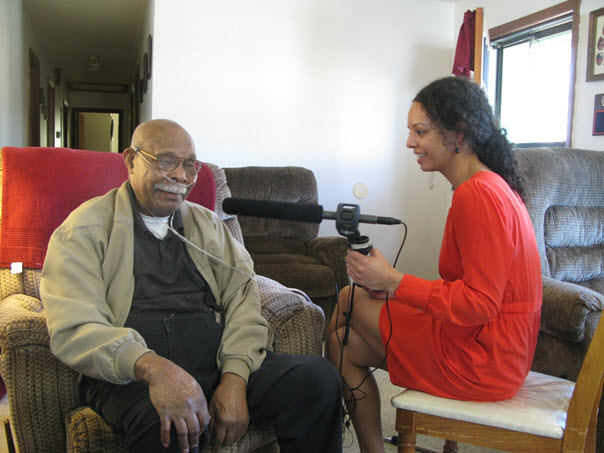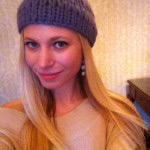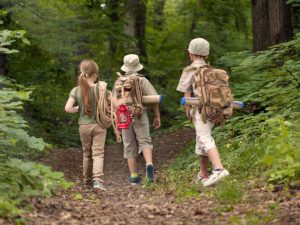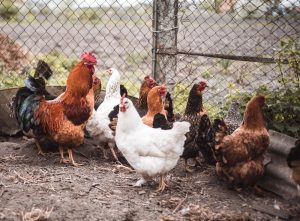
CAITLIN DICKERSON is nothing short of inspirational. She started at NPR as an intern and, in a few short years, is now a Peabody Award winner for her 2015 series on race-based mustard gas testing on troops in WWII. Her investigative journalism has spanned everything from her WWII coverage to the Ebola outbreak in 2014 and, despite major accomplishments already under her belt at such a young age, she shows no signs of slowing down. Dickerson spoke to Lady Clever about why asking “dumb” questions is important, her experience as a woman of color in the world of investigative journalism, and what she has in common with Lin-Manuel Miranda (yes, that one!).
How did the subjects you studied at university — International Studies and Spanish — prepare you for your work at NPR?
During the first few years of college, I thought that I would go to law school after graduation. I didn’t realize that, all along, my international studies coursework was totally preparing me for a career in journalism. Most of my classes were spent putting international news into context – historical, political, social, what have you. I also think that background helped a lot when I got to NPR, because right away I could engage with big global stories during editorial meetings. Spanish has been hugely helpful along the way; I only wish I had more time to keep my skills polished!
You started out as an intern at NPR. What was the biggest thing you took away from that experience?
Run — don’t walk — through every door that opens up to you. Early on in my internship I met Guy Raz, who was the host of Weekend All Things Considered at the time. He invited me to come in and shadow the show one Saturday. I have really vivid memories of that day because it was a pivotal this-is-what-I-want-to-do-with-my-life kind of moment.
When the show ended, I thanked Guy for having me. He politely responded: “Come back any time!” I took that literally, and was there every weekend for the rest of my internship. When it ended, Guy’s executive producer offered me my first temp job as a producer. By then, I’m not sure he felt like he had a choice.
What made you realize that you wanted to make investigative journalism your career?
As a producer on NPR shows, I gravitated naturally toward bigger projects that involved more reporting. Toward the end of my time in that role, I ran into walls on a couple of stories that I felt I could go deeper on, but the show just didn’t have the time or resources. Thankfully, I was then offered a job on the Investigations Desk.
Is there something in particular that draws you to a story you want to cover? Is it just gut feeling?
To be honest, early on, there’s a fair amount of gut involved. I tend to put feelers out on several different story ideas at once when I’m in-between projects, in hopes that one of them will prove to be worth a more significant investment of time. In an ideal world, I’ll be able to turn the other ideas into quicker turnaround feature stories, but it doesn’t always work out that way.
In 2014, you helped cover the Ebola outbreak and the ethics of deploying an experimental vaccine to West Africa. Was there a broad lesson you learned from doing that story?
Ask dumb questions. It sounds silly, but I think I stumbled on that story because I didn’t have a science background. I figured out that health experts were planning to skip some of the steps that are normally required to vet a vaccine for safety and effectiveness by asking really dumb, granular questions about how exactly the process normally works – not because I thought I was onto something that other reporters hadn’t caught, but because I genuinely did not understand it.
Why did you decide to cover the US military’s experiments with mustard gas during WWII?
My editor was pitched a story about the environmental impact of US military mustard gas reserves. He mentioned it to me one day in a meeting, and I thought, “Mustard gas, why do we have that again?” When I found out the reserves were left over from chemical weapons testing done on American troops, I had to find out what had happened to the veterans who were used as test subjects.

Dickerson speaking with veteran Charles Williams for her series on mustard gas testing during WWII
What most surprised you about that particular story?
The humility of the generation of veterans affected by mustard gas testing is what struck me most. I spoke to men whose frustration with the Department of Veterans Affairs brought them to tears during our interviews. Some had been fighting to get VA benefits literally since before I was born. And for the most part, they’ve suffered in silence.
All it takes is a messed-up Starbucks order to send my generation to the loudest and most public microphone we can find – usually Twitter. I think standing up for yourself is a good thing. But these veterans didn’t feel that they were entitled to anything. They also maintained an incredible amount of respect for their country, and pride about having served in the war, which made the way the VA treated them that much worse.
Congratulations on receiving the Peabody Award! Can you tell us a little about the experience?
Thank you! Let me be clear, I am not in any way comparing myself to Lin-Manuel Miranda. But, I totally identify with the way he talks about his first big success, “In the Heights.” He’s said that experience helped him feel like he “belonged” in the theater world, and empowered him to keep going. That’s how I feel about winning a Peabody this early in my career – a little less distracted by the insecurities that come with being one of very few young women of color in my field – and excited to channel that extra energy into my work.
What’s one piece of advice you would like to give young girls today?
Ask for advice. Seriously. I am shameless about walking around the office to pick the brains of colleagues whose work I admire. I’ve also been known to cold-call or email people I’ve never met to ask them for advice! It’s easy to underestimate how generous they will be with their time and guidance. But you never know until you ask. I’ve benefited hugely from those conversations, even if they were a little awkward at first!
Listen to Caitlin’s Peabody Award-winning series here and follow her on Twitter. Caitlin’s reporting was also recently featured on Kelly McEvers’ podcast Embedded (another LC favorite!) in the episode “The Immigrant”. You can listen to that here.
















